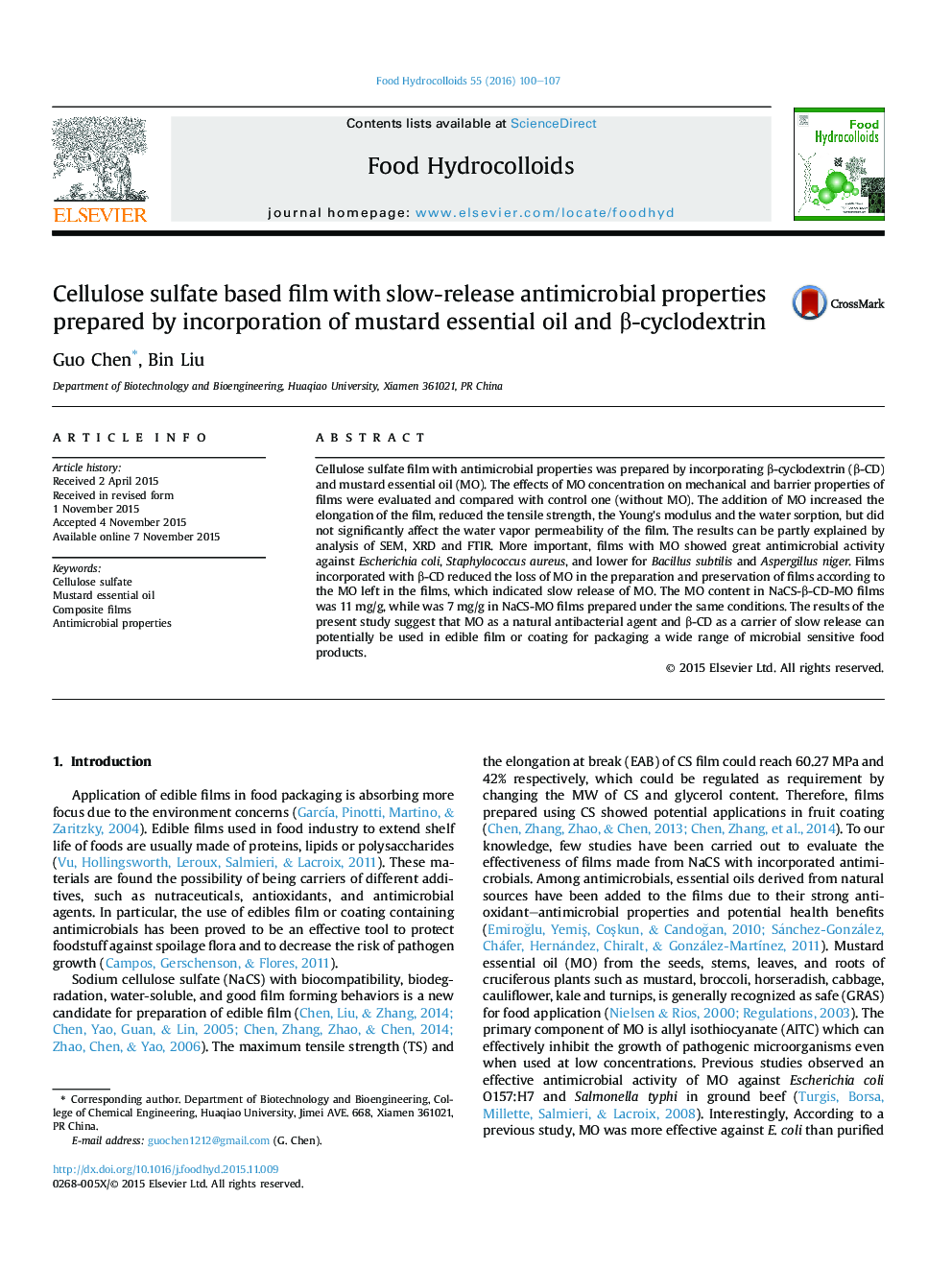| Article ID | Journal | Published Year | Pages | File Type |
|---|---|---|---|---|
| 603658 | Food Hydrocolloids | 2016 | 8 Pages |
•It was the first time to report edible films by incorporating β-cyclodextrins and mustard essential oil.•The basic properties of NaCS-β-CD-MO films such as thickness, water solubility, oil permeability and transparence were report.•MO as a natural antibacterial agent and β-CD as a carrier of slow release in edible film were studied.•The antimicrobial activity of film against Escherichia coli, Staphylococcus aureus, Bacillus subtilis and Aspergillus niger were investigated.
Cellulose sulfate film with antimicrobial properties was prepared by incorporating β-cyclodextrin (β-CD) and mustard essential oil (MO). The effects of MO concentration on mechanical and barrier properties of films were evaluated and compared with control one (without MO). The addition of MO increased the elongation of the film, reduced the tensile strength, the Young's modulus and the water sorption, but did not significantly affect the water vapor permeability of the film. The results can be partly explained by analysis of SEM, XRD and FTIR. More important, films with MO showed great antimicrobial activity against Escherichia coli, Staphylococcus aureus, and lower for Bacillus subtilis and Aspergillus niger. Films incorporated with β-CD reduced the loss of MO in the preparation and preservation of films according to the MO left in the films, which indicated slow release of MO. The MO content in NaCS-β-CD-MO films was 11 mg/g, while was 7 mg/g in NaCS-MO films prepared under the same conditions. The results of the present study suggest that MO as a natural antibacterial agent and β-CD as a carrier of slow release can potentially be used in edible film or coating for packaging a wide range of microbial sensitive food products.
Graphical abstractFigure optionsDownload full-size imageDownload as PowerPoint slide
